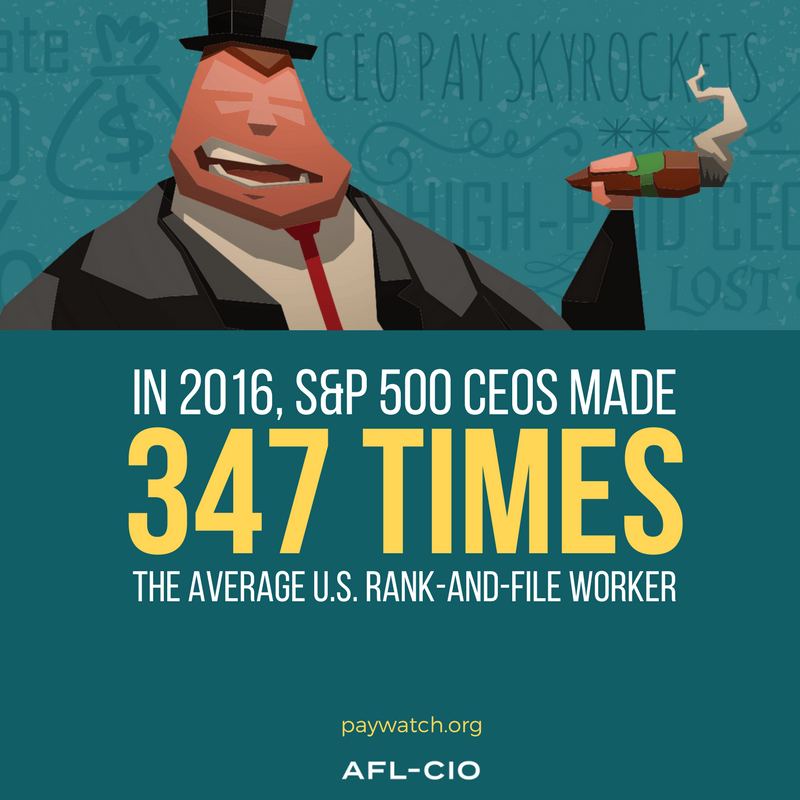
Trick question: What does the average CEO of a major U.S. public company have in common with the average rank-and-file worker? According to the latest findings by AFL-CIO’s Executive PayWatch, the answer is … almost nothing.
Using reports from companies listed on the S&P 500 Index, Executive PayWatch determined that the average reported total compensation of a CEO on that list was $13.1 million per year in 2016. That’s 347 times more than the average worker, who earned approximately $37,600 per year.
“When adjusted for inflation, the average wage has remained stagnant for 50 years,” the AFL said in a statement.
AFL-CIO Pres. Richard Trumka said the 2017 report further proves that “the greed of corporate CEOs is driving America’s income inequality crisis,”
“Big corporations continually find ways to rig the economy in their favor and line their CEOs’ pockets at the expense of the workers who make their businesses run,” Trumka said. “Too often, corporations see workers as costs to be cut, rather than assets to be invested in. It’s shameful that CEOs can make tens of millions of dollars and still destroy the livelihoods of the hard-working people who make their companies profitable.”
CEO pay has been on the rise for years while workers’ pay has continued to lag. The reason is that CEOs have a lot of influence over what they’re paid, but workers don’t, said Heather Slavkin Corzo, director the AFL-CIO’s Office of Investment. Without unions, workers “don’t have the ability to negotiate for higher wages,” she explained during a press briefing Tuesday.
Support for her statement came Wednesday from another source, The Washington Post. In an article examining why workers’ wages are not growing with the economy, the Post reported:
“The pay that workers take home has risen a little since the depths of the recession, but not much. Once you factor in inflation, wages growth is so low that workers are hardly better off than they were a year ago. Over the past year, average hourly earnings have risen just 2.5 percent, according to Friday's report on April job growth.”
Given strong job growth and low unemployment, that trend “is disappointing — and somewhat surprising,” the Post reported. A major cause of this disappointing growth in workers’ wages, according to the newspaper, is the loss of bargaining power – power that comes from unions.
According to the Post, globalization has made it easy for companies to simply move to cheaper countries if labor costs rise in one.
Mondelez International, which makes products such as Oreos and Ritz Crackers, is a prime example of that trend. Last year, it closed the Oreo cookie line at the iconic Nabisco factory in Chicago. A total of 600 jobs were lost as production shifted to Salinas, Mexico.
Mondelez CEO Irene Rosenfeld earned more than $16.7 million in total compensation in 2016 – about $8,000 per hour, or equal to 145 times the hourly total compensation of those laid-off workers.
